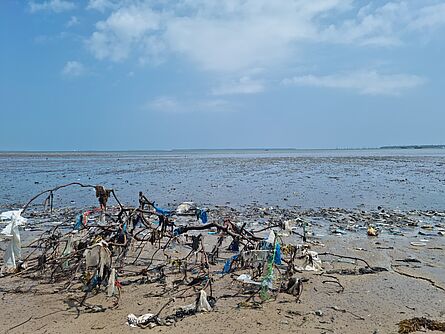This September, four Master’s students from HafenCity University Hamburg traveled to Dar es Salaam to take part in a five-day summer school titled Unpacking the Plastic Waste Problem in Dar es Salaam; along with 16 students from Tanzania. The program offered a unique opportunity to examine the plastic waste crisis on the ground and explore sustainable solutions.
Taking place from September 15 to 19, 2025, at Ardhi University in Dar es Salaam, the summer school was based on a co-learning format, which emphasizes student contributions and peer exchange. Alongside lectures by local and international experts, students presented case studies, participated in group discussions, and met stakeholders. The program also included site visits and group tasks to get a deeper understanding of the challenges and to develop solutions for plastic waste management.
The summer school was organised as part of the Dar Safi, Bahari Safi project at HafenCity University. Funded by the German Federal Ministry for the Environment, Nature Conservation, Nuclear Safety and Consumer Protection (BMUV), the project is a partnership between HafenCity University Hamburg (Germany), Ardhi University (Tanzania), UN-Habitat (Kenya), Bremen Overseas Research and Development Association-Tanzania (Tanzania), and SweepSmart (The Netherlands). With three main pillars - policy reform, infrastructure development, and capacity building - the project aims to reduce plastic waste entering the Indian Ocean by strengthening the waste management system in Dar es Salaam. The summer school directly contributes to the capacity-building component by engaging young scholars in field-based learning and systems thinking.
Through this immersive program, students gained a holistic understanding of the plastic waste problem in urban contexts. They learn to describe and analyze the plastic waste value chain, from production and consumption to collection, processing, and disposal. They also explored institutional and policy challenges, as well as the socioeconomic impacts of plastic pollution on different communities. Most importantly, the program encourages students to think critically, collaborate across disciplines, and propose inclusive, long-term solutions that are grounded in both local realities and sustainability goals.




